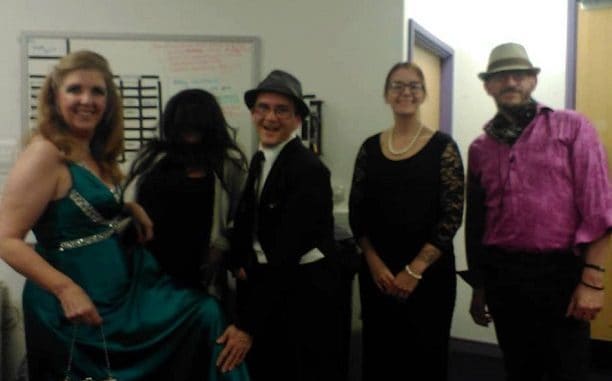
Writing a murder mystery isn’t as easy as I thought. Knowing people who write them, and having performed in them as well, I’d begun to get a feel for what constituted a good rhythm. When they’re written well, they’re a pleasure to both read and perform.
Lisa Payne, an actor who deserves to be more well-known internationally, has written murder mysteries for more years than I can count; I’ve even had the good fortune to appear in a large number of them. I usually played a character on the theme of (in the early days) a snob or (latterly) a dimwit.
I stopped playing a snobbish character when we performed in a museum and were allowed to act alongside the priceless antiques. I was banned from particular areas when I knocked a priceless artefact with my elbow and nearly sent it crashing to the floor; it was only Lisa’s quick reflexes that prevented it from smashing into a thousand or so pieces.
Through a convoluted set of circumstances, I was then invited to take part in a murder mystery in one of Kent’s wonderful libraries. It was already written, and the librarian – a lovely woman by the name of Karin – organised the event; it was well received and very popular. I had to adjust to a different style of murder mystery, – but it was a lot of fun, and I had the chance to act with a new group of people.
The cast all said that it would be lovely to do some more, and I cockily said – in a moment of madness – that I could probably write one. I don’t know why I said it so glibly, because I was always in awe of Lisa’s ability, and I wasn’t sure that I would be able to do the same. However, I’d said it, and Karin said, “Yes, great, write one for us and we’ll put it on!”
So I found myself in a situation where I had promised to write something that I had never written before, and only ever performed in them as a result of someone else’s craft. I sat down and had to really think how to create a murder mystery; what is the murder, who has been murdered and, mostly important, why has someone gone to all the trouble of killing them?
I started on the basis that I wanted it to be funny. I’m not a natural for comedy; the odd one-line here or there, sure, but I don’t have the capacity to write an entirely-funny script. I’m not sure I would want to, either, because murder mystery has to have an element of seriousness underpinning it – without that, the humour wouldn’t work.
Finding a balance was key, and I’m fortunate in that I can write for particular people; I know the cast who are going to perform. It’s quite a privilege to be in that position, but I also need to write broadly enough so that, if anyone else ever wanted to put these murder mysteries on, they could do it with their own cast without too much hassle.
I’d also made a conscious decision to not write murder mysteries in the same vein as Lisa’s; hers were funny and clever because of the way they were crafted, coming from her wonderfully inventive mind that I couldn’t begin to match. So I deliberately chose to model my scripts on the style I’d already perform in the library; it gave me a structure, and it also meant I wouldn’t try – consciously or not – to duplicate Lisa’s winning formula into a poor relation.
There’s also nothing like hearing your words spoken out loud by the performers, and in having them say, “Matthew, we might need to change this bit here because of …” That helps you hear the dialogue and learn what works; there’s nothing like hearing it spoken out loud to know where the natural cadences of speech lie in different people’s minds.
I love being involved with murder mysteries, and long may they be in demand; I can use my fertile mind to turn almost any scenario into an intriguing mystery – so if you meet me and think I’m off into my own mind, it might be because I’m working what the angle is. Be warned …

